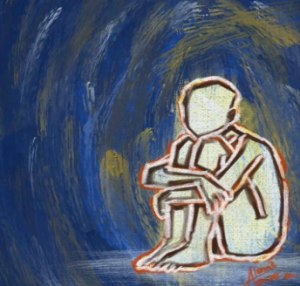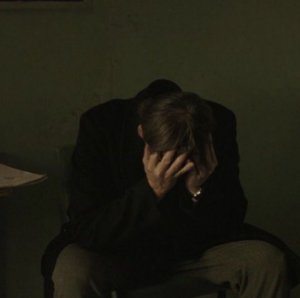Oftentimes, I find myself overstimulated and tired after a long day. I get home, finish schoolwork, and study for what’s coming up next. Sometimes I have extracurricular activities that require my attention. At the end of the day, all I can think about is sleeping. What’s ironic, though, is that just as I’m getting into bed and trying to fall asleep, thoughts come racing in. Sometimes my brain likes to remind me of something embarrassing I did five years ago; other times it likes to philosophize and reflect on a profound aspect of my life.
All of this led me to wonder: how come we manage to think so deeply at night? Well, to put it simply, there are no distractions at night. No loud sounds, no traffic noise, and no screens can catch our eye – the world is quiet and we are alone. That’s when we really get some downtime to sit and meditate upon more intense subjects, to which we couldn’t pay attention during the day, when everything and everyone gets so busy.

To better understand what profound thoughts truly are, we need to differentiate between actual deep thoughts and existential OCD. Existential OCD consists of persistent, intrusive thoughts about the nature of reality, existence, and the meaning of life. Thoughts like these often lead to intense anxiety and a compulsive need for certainty. So, if you’re constantly questioning your existence, obsess over the meaning of life and death, or have an intense fear of the unknown or the concept of infinity, know that you belong to the 29,6% of the population that experiences existential OCD.

Actual keen thoughts, on the other hand, are related to a more measured and somewhat limited approach to learning and exploring life’s most profound questions. The ability to accept the idea of uncertainty and ambiguity, the enjoyment of philosophical debates/intellectual discourse, and the willingness to explore different perspectives and ideas all lead to the contemplative nature of humans, which, in contrast to existential OCD, is totally normal for a modern person to possess.
Deep thoughts aren’t related to just questioning one’s existence – they are also in close correlation to creativity and being able to solve problems faster and more efficiently. When the world goes quiet, we concentrate better; we improve our problem-solving skills. That’s why, sometimes, obstacles suddenly become easier to overcome, and we experience the classic “aha!” moment.

But just because we think more clearly at dusk, that doesn’t necessarily mean it is good for our health. Staying up at night and pacing around the room because we can’t control our racing thoughts can affect our sleep hygiene and our body’s biological clock. If you’re one of those people who simply can’t put an end to intrusive and irrational thinking, journaling before bedtime, breathing exercises, or visualising a peaceful scenery can calm down anxiety and potentially help you fall asleep, so you avoid insomnia and continue to live healthily.

Thoughts do, indeed, get more intense and heartfelt at night. Occasionally, they help us get to know ourselves better and understand how the world around us works. On the contrary, they can also lead to insanity, so acknowledging the difference between mental illnesses and human nature plays a huge role in how we manage our emotions and, finally, our sleep schedule. If times get tough, it’s better to take accountability, rather than just sitting around in sorrow. Asking for help shouldn’t be shameful, and it could potentially improve your well-being. After all, each and every one of us is living for the first time, and we shouldn’t have to do it alone.
